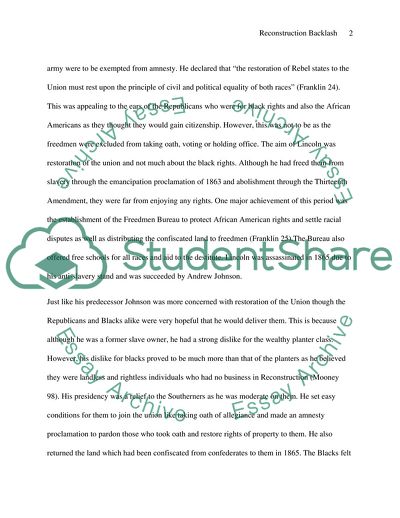Cite this document
(The Reconstruction Period Essay Example | Topics and Well Written Essays - 1500 words, n.d.)
The Reconstruction Period Essay Example | Topics and Well Written Essays - 1500 words. https://studentshare.org/history/1814427-the-reconstruction-period-and-its-backlash
The Reconstruction Period Essay Example | Topics and Well Written Essays - 1500 words. https://studentshare.org/history/1814427-the-reconstruction-period-and-its-backlash
(The Reconstruction Period Essay Example | Topics and Well Written Essays - 1500 Words)
The Reconstruction Period Essay Example | Topics and Well Written Essays - 1500 Words. https://studentshare.org/history/1814427-the-reconstruction-period-and-its-backlash.
The Reconstruction Period Essay Example | Topics and Well Written Essays - 1500 Words. https://studentshare.org/history/1814427-the-reconstruction-period-and-its-backlash.
“The Reconstruction Period Essay Example | Topics and Well Written Essays - 1500 Words”. https://studentshare.org/history/1814427-the-reconstruction-period-and-its-backlash.


